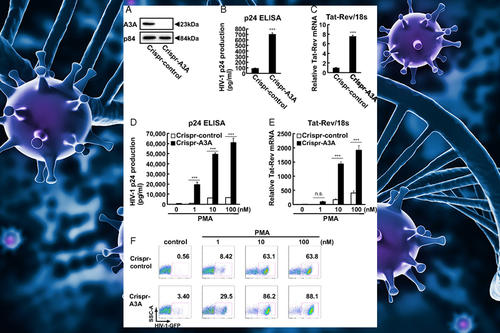Iwasaki Lab examines how an immune system protein helps suppress HIV.

Much of the research on HIV has focused on preventing infection but little is understood about how the body keeps the virus in check post-infection. A new study by Yale investigators reveals the role of a protein that serves to block HIV gene expression once it has entered human cells.
The research team, led by Manabu Taura, a postdoctoral fellow in the laboratory of immunobiologist Akiko Iwasaki, studied T cell lines infected with latent HIV. They observed the effect of modifying genes to either overexpress — that is, make multiple copies of — or knock out the protein Apobec3A (A3A), which is known to suppress HIV during early infection phase. The researchers found that A3A blocks HIV reactivation by binding to a region of HIV DNA that would otherwise promote the virus, and instead, recruiting a complex of enzymes that inhibit HIV. The team then confirmed those findings through experiments on HIV-infected human T cells.
For the complete story, please visit: https://news.yale.edu/2019/01/21/yale-scientists-examine-how-immune-system-protein-helps-suppress-hiv?utm_source=YNemail&utm_medium=email&utm_campaign=yn-01-24-19